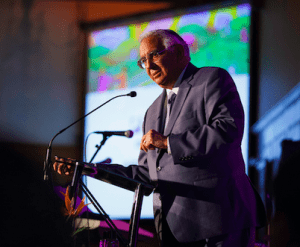 The center of the messianic movement was Jerusalem, and this is clearly seen in our text from Acts 11:
The center of the messianic movement was Jerusalem, and this is clearly seen in our text from Acts 11:
11:22 A report about them came to the attention of the church in Jerusalem, and they sent Barnabas to Antioch. 11:23 When he came and saw the grace of God, he rejoiced and encouraged them all to remain true to the Lord with devoted hearts, 11:24 because he was a good man, full of the Holy Spirit and of faith, and a significant number of people were brought to the Lord. 11:25 Then Barnabas departed for Tarsus to look for Saul, 11:26 and when he found him, he brought him to Antioch. So for a whole year Barnabas and Saul met with the church and taught a significant number of people. Now it was in Antioch that the disciples were first called Christians.
But the center of the movement was shaped by a certain kind of leader. Barnabas was “a good man, full of the Holy Spirit and of faith.” Barnabas, a leader in Jerusalem, is sent to inspect and evaluated the work of God in Antioch. What he sees is the “grace of God” — manifestations of God’s gracious redemptive work in Antioch.
) used because there are now two social groups — messianic Jews and Gentiles — and a term of unity is needed? Or is this an indicator that ordinary Jews were being distinguished from the “messianists” (another way of translating “Christians”).










